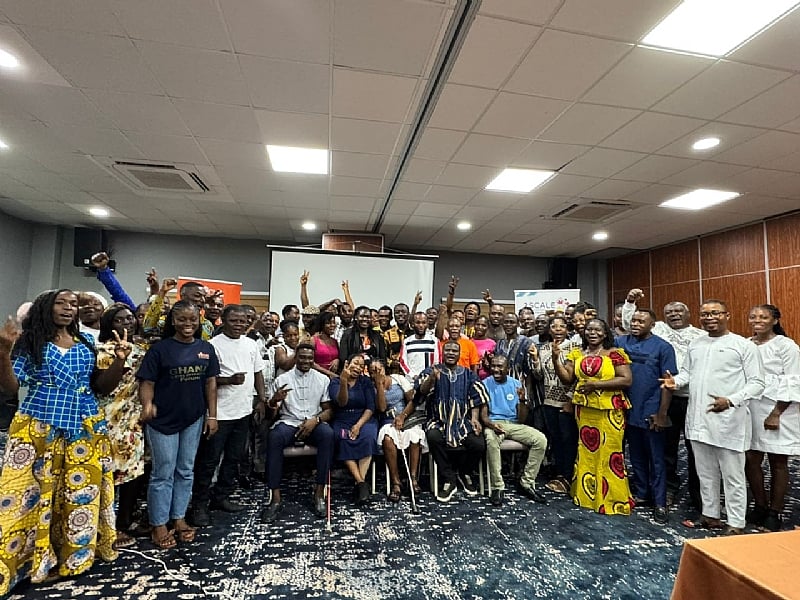Paragraph 1: The Imperative of Inclusive Agribusiness
Social Enterprise Ghana (SEG) has issued a compelling call to action for agribusinesses in Ghana, urging them to adopt an inclusive business model that integrates individuals at the Base of the Pyramid (BOP) into their core operations. This strategic shift, SEG argues, goes beyond mere corporate social responsibility and represents a sustainable pathway to poverty reduction and economic growth. True inclusivity requires a fundamental change in perspective, viewing the BOP not as recipients of charity, but as integral partners in the value chain. By engaging vulnerable groups – including smallholder farmers, women, youth, pensioners, and persons with disabilities – as suppliers, retailers, or distributors, businesses can directly contribute to their economic empowerment and upliftment.
Paragraph 2: Untapped Potential and Mutual Benefit
With approximately 24% of Ghana’s population falling within the BOP category, this segment represents a significant, yet largely untapped, market opportunity for agribusinesses. Companies aiming to address pressing issues such as poverty, hunger, and malnutrition can achieve greater impact by designing business models that specifically incorporate these marginalized groups. This inclusive approach offers a win-win scenario: businesses gain access to new consumer markets and strengthen their overall operations, while BOP individuals benefit from increased income and improved livelihoods. This symbiotic relationship fosters sustainable growth and contributes to broader economic development.
Paragraph 3: Training and Dissemination of Inclusive Practices
SEG’s advocacy for inclusive agribusiness is being put into practice through a series of nationwide workshops, sponsored by 2SCALE (Towards Sustainable Clusters in Agribusiness through Learning and Entrepreneurship). The workshops target small and medium-sized agribusinesses, providing practical guidance on how to implement inclusive practices within their operations. These workshops, held across various regions of Ghana, bring together diverse stakeholders, including farmers, processors, and input suppliers, fostering collaboration and knowledge sharing. The training emphasizes that inclusivity is not solely the domain of large corporations but is equally relevant and beneficial for micro, small, and medium enterprises.
Paragraph 4: Practical Examples of Inclusive Business Models
SEG’s training highlights successful examples of inclusive business models in action, demonstrating that profitability and social impact are not mutually exclusive. Nestlé Ghana’s innovative approach of offering milk in affordable sachets while maintaining quality exemplifies how businesses can cater to low-income consumers without compromising product standards. Similarly, Akoko Tasty’s strategy of providing smaller, more affordable chicken portions demonstrates a practical way to expand market reach and cater to the needs of budget-conscious consumers. These examples serve as powerful case studies for other agribusinesses looking to implement inclusive strategies.
Paragraph 5: Empowering the Next Generation of Entrepreneurs
Recognizing the importance of embedding inclusivity in the DNA of future businesses, SEG, in partnership with 2SCALE, is specifically targeting young entrepreneurs with its training programs. These young entrepreneurs represent the future of enterprise development in Ghana, and instilling inclusive principles early in their business planning is crucial for long-term, sustainable growth. As the 2SCALE project concludes after 12 years of operation, SEG is actively seeking strategic partners to ensure the continuation and expansion of the inclusive agribusiness agenda. This focus on future generations underscores the commitment to building a more equitable and inclusive economic landscape.
Paragraph 6: Transformative Impact and the Essence of Inclusivity
The training has already demonstrated tangible impact, transforming the perspectives and practices of participating agripreneurs. Florence Hini, a social entrepreneur and okro farmer, shared how the training broadened her understanding of recruitment, moving from a focus on formal education to recognizing the value and potential of employing less privileged individuals, including people with disabilities. Beyond simply providing jobs, genuine inclusivity involves empowering workers by giving them a voice in decision-making processes and acknowledging their contributions. This can be achieved through various means, including feedback mechanisms, recognition programs, and sharing the final products. Hini emphasizes that true inclusivity requires active engagement with workers and communities, fostering a sense of ownership and shared responsibility. By aligning opportunities with the interests and strengths of individuals and communities, agribusinesses can build resilience, reduce poverty, and achieve sustainable long-term growth.


